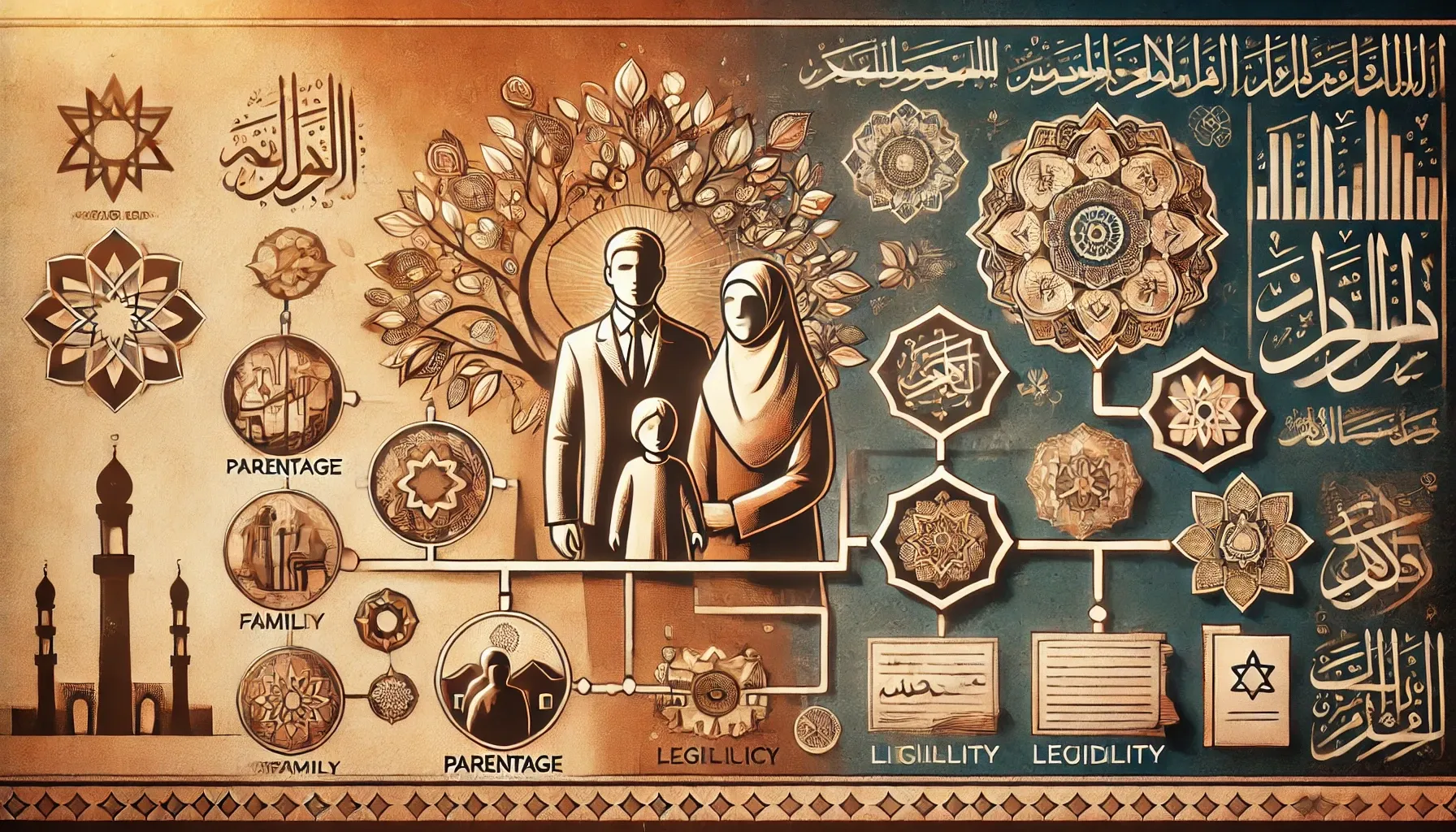Under Muslim law, parentage defines legal rights for children, focusing on legitimacy established through lawful marriage. Maternity is clear-cut, while paternity and legitimacy hinge on valid wedlock.

Introduction
Parentage refers to the relationship between parents and their children, and it establishes key legal connections regarding inheritance, guardianship, and maintenance. Paternity is the legal relationship between a father and his child, while maternity is the legal relationship between a mother and her child. Under Muslim law, these relationships are central to determining the rights and obligations of the child.
Maternity
Under Muslim law, maternity is straightforward: the woman who gives birth to a child is recognized as the child's mother, regardless of whether she is married or unmarried or whether the child is born out of wedlock (zina). Hence, the maternity of a child presents no legal complications in Muslim law.
Paternity and Legitimacy
Paternity, however, is entirely dependent on the lawful wedlock between both parents. A child is considered legitimate if the marriage between the parents is either valid or irregular. In cases where the marriage is void, the child is deemed illegitimate. Therefore, paternity, and consequently legitimacy, is only established through lawful marriage.
Muslim law presents a fairly liberal stance on legitimacy but strongly condemns illegitimacy. For instance, a woman guilty of illicit relations (zina) is punishable under Islamic law. Illegitimacy carries severe consequences. Among Shia Muslims, an illegitimate child is regarded as filius nullius (child of no one), meaning the child has no legal relationship with either parent. On the other hand, the Hanafi school (Sunni) recognizes the child's relationship with the mother for certain legal purposes. However, under no school of Muslim law does an illegitimate child have a right to inherit from their biological father.
Presumption of Legitimacy
In Muslim law, for a child to be considered legitimate, the child must not only be born during the parents' lawful wedlock but must also have been conceived during this wedlock. A child born after six months of marriage is presumed legitimate unless disclaimed by the father. Conversely, a child born within six months of marriage is illegitimate unless acknowledged by the father.
The presumption of legitimacy extends to a child born within two lunar years after the termination of the marriage, as per Hanafi law. However, Shia law limits this period to ten lunar months, while Shafei and Maliki laws extend it to four lunar years. Section 112 of the Indian Evidence Act[1] reinforces this presumption by stating that a child born during a valid marriage, or within 280 days after its dissolution (provided the mother remains unmarried), is conclusively presumed legitimate unless it can be shown that the parents had no access to each other during the time of conception.
Acknowledgment of Paternity
In situations where paternity cannot be established through lawful marriage, Muslim law allows for acknowledgment as a method of establishing legitimacy. Acknowledgment is a formal declaration by a man recognizing a child as his legitimate offspring. This acknowledgment can be implied from habitual behaviour where the man treats the child as his legitimate heir. It is vital for the legitimacy of a child and may also be used to imply the existence of a lawful marriage between the parents.
Conditions for a Valid Acknowledgment
For acknowledgment of legitimacy to be valid, the following conditions must be met:
- The acknowledger must be legally capable of entering into a valid contract.
- The acknowledgment must explicitly state legitimate sonship, intending to confer legitimacy on the child.
- The age difference between the acknowledger and the child must be such that parentage is possible (i.e., the acknowledger must be at least 12.5 years older than the acknowledged child).
- The child must not be the product of unlawful intercourse, such as adultery, fornication, or incest.
- The child must not be publicly known to belong to another man.
- The child must accept the acknowledgment or at least not reject it.
- The man acknowledging the child must have been legally capable of marrying the child's mother at the time of conception or birth.
Once made, an acknowledgment cannot be revoked. However, if the child has reached an age where they can understand the situation, they may reject the acknowledgment. While acknowledgment creates a presumption of legitimacy, it is not conclusive and can be rebutted with contrary evidence.
For example, if a Muslim man 'A' married a girl, then quickly married her niece 'B' after her divorce, and 'B' gave birth to a child within one month of their marriage, the second marriage is irregular under Muslim law. Since the child was born within six months of marriage, it would be considered illegitimate under both Muslim law and Section 112 of the Indian Evidence Act[2].
Adoption in Muslim Law
Unlike Hindu or Roman law, adoption is not recognized under Muslim law. Even if a Muslim adopts a child, the adopted child does not have full rights of inheritance. Adoption is only recognized if a special family or tribal custom permits it, such as in Punjab or Oudh, but even in these cases, adoption does not confer inheritance rights comparable to biological children.
Adoption v/s Acknowledgment
Conclusion
In summary, Muslim law places significant emphasis on the legitimacy of a child, which is primarily determined through lawful wedlock between parents. While there are methods, such as acknowledgment, to establish legitimacy in cases of doubt, illegitimate children have limited legal standing, especially regarding inheritance. Adoption, as practiced in other legal systems, is not recognized in Muslim law.
#muslim-law
[1] The Indian Evidence Act, 1872, s. 112.
[2] Ibid.


